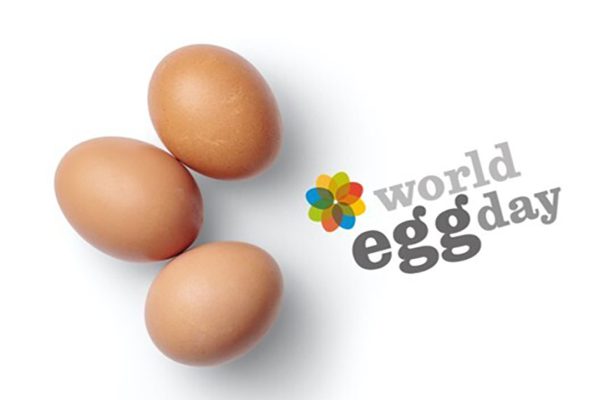As nations around the globe mark World Egg Day, the conversation in Nigeria is shifting toward a pivotal policy change: including eggs as a daily staple for children in public schools. The Poultry Association of Nigeria (PAN), Ogun State chapter, is urging the Federal Government to officially adopt an “Egg-a-Day Policy” within its National School Feeding Programme—an appeal rooted in nutrition, local business interests, and the academic future of Nigerian youth.
This call to action, echoing from the 2025 World Egg Day celebration themed “The Mighty Egg: Packed with Natural Nutrition,” comes at a time when malnutrition and learning challenges remain serious concerns for many school-age children in West Africa. The logic is simple yet profound: making eggs a daily school meal essential can bolster children’s health, enhance academic performance, and ramp up local economic growth.
According to Alhaji Yinka Lawal, chairman of PAN Ogun (PANOG), embedding an Egg-a-Day commitment into Nigeria’s school feeding plan could deliver a cascade of benefits: “When you ensure one egg per child, you’re not only protecting against malnutrition and cognitive deficits—you’re also cultivating reliable markets for our farmers, driving employment, and fortifying communities,” he noted during the event.
In advocating for this initiative, Lawal also called on Ogun’s Governor Dapo Abiodun to take a leadership role in championing the policy, not just in Ogun, but across South-West Nigeria—a region known for its vibrant agriculture and educational aspirations. “If our leaders adopt this policy, it can become a model for other states, strengthening both our children and our economy,” Lawal argued.
Eggs are well regarded for their rich blend of high-quality protein, healthy fats, essential amino acids, and vital micronutrients—including vitamins B2, B12, D, and important minerals like selenium and choline, all of which contribute to brain development, immunity, and general well-being. According to the United Nations Children’s Fund (UNICEF), undernutrition remains one of the leading causes of poor educational outcomes and developmental challenges in Nigeria. By adding eggs to daily meals, schools can ensure pupils receive a critical nutritional boost each day.
But PAN’s appeal reaches beyond classrooms. The group wants support across the agricultural value chain. “Backing poultry farmers with affordable financing, input subsidies, and improved infrastructure—especially in the supply of feed and stable electricity—is vital if we are to keep up with the growing demand that such a policy will create,” Lawal stressed. For many local farmers, especially small to medium-scale operators, these supports could mean the difference between thriving and shuttering operations, especially as feed and input prices continue to rise.
One pressing concern voiced by PANOG is the escalating price of day-old chicks. Input costs have soared in recent years, squeezed by inflation, rising cost of imported feed, and currency pressures. “We urge hatchery operators to consider the burden high prices place on local farmers. If costs remain unchecked, the backbone of our poultry industry—the smallholder—will be at risk,” Lawal cautioned, echoing the anxieties of countless farmers who have seen their profits steadily eroded.
Data from the Food and Agriculture Organization (FAO) indicate that Nigeria produces billions of eggs annually, yet consumption rates lag behind global benchmarks, particularly in low-income households. A daily egg in every school meal could markedly increase demand, providing a dependable market at scale for local producers. Such moves could be transformative in rural areas where poultry farming remains a crucial—but precarious—source of livelihoods.
The nutritional benefits of eggs are widely acknowledged. “Regular egg consumption has been shown to significantly reduce the risk of protein-energy malnutrition in children,” reported Lagos-based nutritionist Mrs. Nnenna Okorie. “With more access to eggs, we give our children a better shot at healthy growth, sharper mental capacity, and improved school attendance.” She pointed to similar feeding interventions in Kenya and Ghana, where inclusion of animal proteins in school meals led to better test scores and reduced dropout rates.
Yet challenges persist. Implementation of school feeding programs is often hampered by inconsistencies in funding, supply chain breakdowns, and inadequate monitoring. According to education policy researcher Dr. Femi Ajayi, “To scale the Egg-a-Day Policy successfully, government must invest in logistics, quality assurance, and transparent partnerships with local farmers—while tackling systemic corruption that has marred past initiatives.”
Efforts are already underway in Ogun State, with PANOG having organized school sensitization campaigns, egg donation drives, and public health talks across regions such as Egba, Ijebu, Remo, Yewa, Ota, and Mowe. These events aim to educate families and teachers about the value of eggs, demystifying misconceptions and sparking community interest.
On a wider scale, advocates highlight the global context. World Egg Day, celebrated annually on the second Friday of October, brings a spotlight to the remarkable nutritional profile of eggs and their role in achieving the United Nations’ Sustainable Development Goals—especially hunger reduction, good health and well-being. Countries like Brazil, India, and South Africa have adapted their school feeding programs to include more eggs, with measurable improvements in child nutrition statistics.
From a business perspective, the poultry industry is a mainstay of the Nigerian economy, employing millions and contributing significantly to GDP. The sector, however, often contends with unstable input markets, disease outbreaks, and erratic energy supplies—challenges that require targeted policy interventions. “When the government partners effectively with producers—offering access to fair loans, technical support, and reliable infrastructure—it boosts productivity and food security for everyone,” stated Dr. Olumide Babatunde, agricultural economist.
Despite the hurdles, optimism remains high among industry insiders. “If we align government commitment with grassroots mobilization, Nigeria could soon join the ranks of countries where every child—regardless of background—has access to nutrient-rich food in school,” observed local education advocate Mrs. Maryam Bello.
Community testimonials reflect growing enthusiasm. “Our children love eggs, but sometimes we can’t afford them regularly,” shared Abeokuta parent, Mr. Abdul Kareem. “If they get even one egg a day at school, it makes a big difference for families like ours.”
As the 2025 World Egg Day celebrations wrap up across Ogun State, the message is clear: the humble egg may be simple, but its potential for driving national health and prosperity is mighty. While the Egg-a-Day Policy still awaits federal adoption, mounting evidence and widespread public support keep the pressure on policymakers to act decisively.
Will Nigeria take the leap and ensure that every child has a daily egg to power their dreams and support local farmers? Community members, advocates, and producers alike hope the answer is “yes.”
What are your thoughts on the Egg-a-Day Policy—would you support its nationwide rollout, and what challenges do you foresee? Drop your comments below and let your voice be heard!
Got a story, recipe, or personal experience about nutrition or food that you’d love to share or sell?
We want to hear from YOU! Send your story to story@nowahalazone.com and get featured or discuss story sales.
If you have general questions or tips, reach out anytime at support@nowahalazone.com.
Follow NowahaLaZone for more local stories, recipes, and updates—connect with us on
Facebook,
X (Twitter), and
Instagram!
Foodie or parent? Share your family’s favorite egg recipes or nutritious meal tips with our community!










